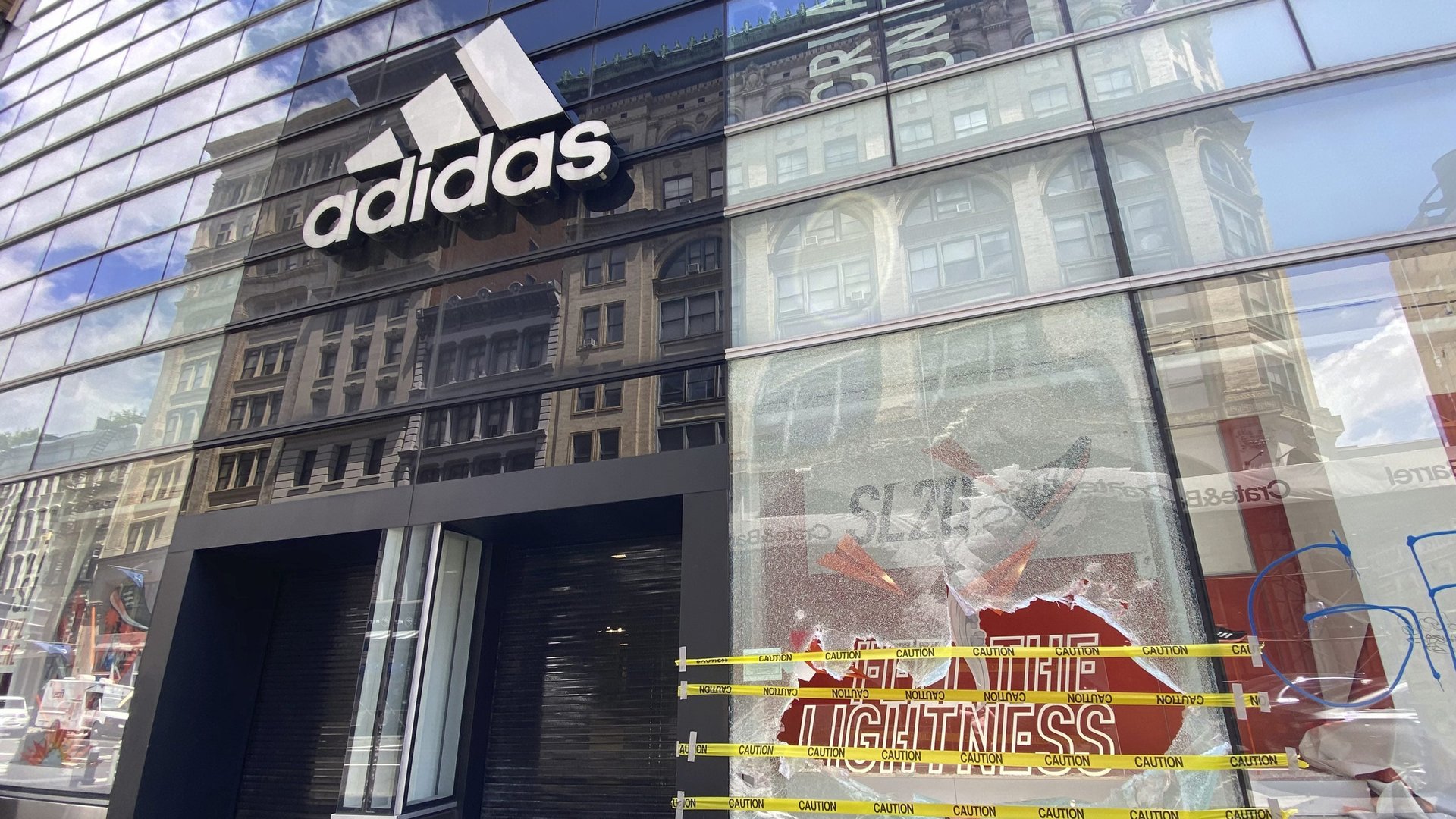Sneaker companies claim solidarity with protesters, but can they back it up?
Corporations of all sorts are condemning racism and voicing their anger at police violence against black Americans while protests over the killings of George Floyd, Breonna Taylor, Tony McDade, Sean Reed, and a legacy of others roil the US. Companies from Amazon to Under Armour have issued statements on social media proclaiming a vague need to stand together and calling for an end to racial inequity.


Corporations of all sorts are condemning racism and voicing their anger at police violence against black Americans while protests over the killings of George Floyd, Breonna Taylor, Tony McDade, Sean Reed, and a legacy of others roil the US. Companies from Amazon to Under Armour have issued statements on social media proclaiming a vague need to stand together and calling for an end to racial inequity.
Many companies that sell their goods or services to the general public are under immense pressure to offer their support. Long gone are the days when they could comfortably remain silent on vital social issues. But these statements of solidarity with the black community don’t sit easily beside the reality behind the scenes in corporate America.
That’s because the racism corporate leaders decry doesn’t just turn up as police violence. It’s present in a myriad of forms, economic as well as social, including the lack of black executives in leadership ranks and corporate cultures that can marginalize black employees. That can even be the case among companies that rely heavily on black shoppers for sales and black celebrities as their public faces, such as Nike and Adidas, which were among the earliest companies to speak out.
Adidas released a statement on social media on May 30, crossing out the word “Racism” and proclaiming, “Together we must fight what is wrong and try to make it right.” Some online mocked the statement, which didn’t offer any concrete actions or mention the killings. It also didn’t address Adidas’s own problems.
Just last June, the New York Times reported that black employees in the German company’s corporate US offices accounted for only 4.5% of staff, while more than half of employees on its retail floors were black. The black employees in its corporate offices also said they often felt discriminated against. The US is an important market for Adidas. Last year, it did about €5.3 billion ($6.5 billion), or roughly 22.5% of its business, in North America.
Nike has internally acknowledged the blight of racism in the past, and publicly it has supported former NFL player Colin Kaepernick, who was effectively blacklisted from the league after repeatedly kneeling during the US national anthem in protest of police brutality and racial injustice. It made its position on the protests clear before most other companies, releasing an ad on May 29 that flipped its well-known slogan, “Just do it,” and urged instead, “For once, don’t do it.” It continued with directives such as, “Don’t pretend there’s not problem in America” and “Don’t turn your back on racism.”
But the company itself has acknowledged that its executive ranks aren’t as diverse as they should be. While about 22% of all Nike employees are black, according to the diversity statistics it publishes, the proportion shrinks as you move up the corporate ladder. When you get to the level of vice presidents, 10% are black and 77% are white.
Even so, it may still have greater diversity than top leadership across much of corporate America, which has been slow to make progress. Black Enterprise, a financial magazine for African Americans, found 187 companies in the S&P 500—or about 37%—did not have a single black board member in 2019. It noted that while some tech giants, such as Amazon, Apple, and Facebook, have added black members to their boards in recent years, Cisco, Oracle, and Intuit still had none.
And of course plenty of other industries still fail on diversity across the workforce, from the entry level to the boardroom. Take US fashion for example.
It is important that companies speak out against injustice, in part because they have some of the loudest voices in US society. “We live in an ecosystem of capitalism, and so social justice is living in a very complicated structure of capitalism,” Alexis McGill Johnson, co-founder and co-director of the Perception Institute, which strives to reduce bias and discrimination across various fields, said in a 2018 interview with Quartz.
But it matters, too, how companies act. In the past several days, commenters online have called out a number of corporations for issuing statements in support of black Americans despite past business decisions that their accusers say hurt black Americans. The American Civil Liberties Union, for instance, criticized Amazon for selling facial-recognition technology it says “supercharges” police abuse. Nextdoor, a social network where neighbors can speak and connect, caught flak because it has been accused of enabling racism in communities.
Many companies have come under fire for not announcing concrete actions. Fewer have made commitments beyond one-off donations. Among those are companies such as beauty brand Glossier, which is not only donating $500,000 to different groups combating racial injustice, but also said it will distribute an equal amount in grants to black-owned beauty businesses.
Corporations should be encouraged to condemn racism. But those that truly want to stand against it may want to demonstrate they’re fighting it in all its forms, including the ways it can appear in their own businesses.
Correction: An earlier version of this story said Nextdoor users speak anonymously.